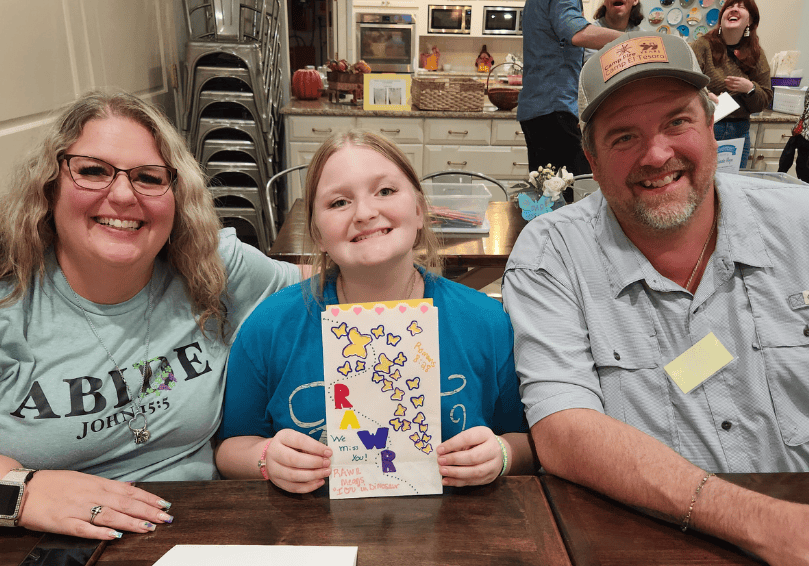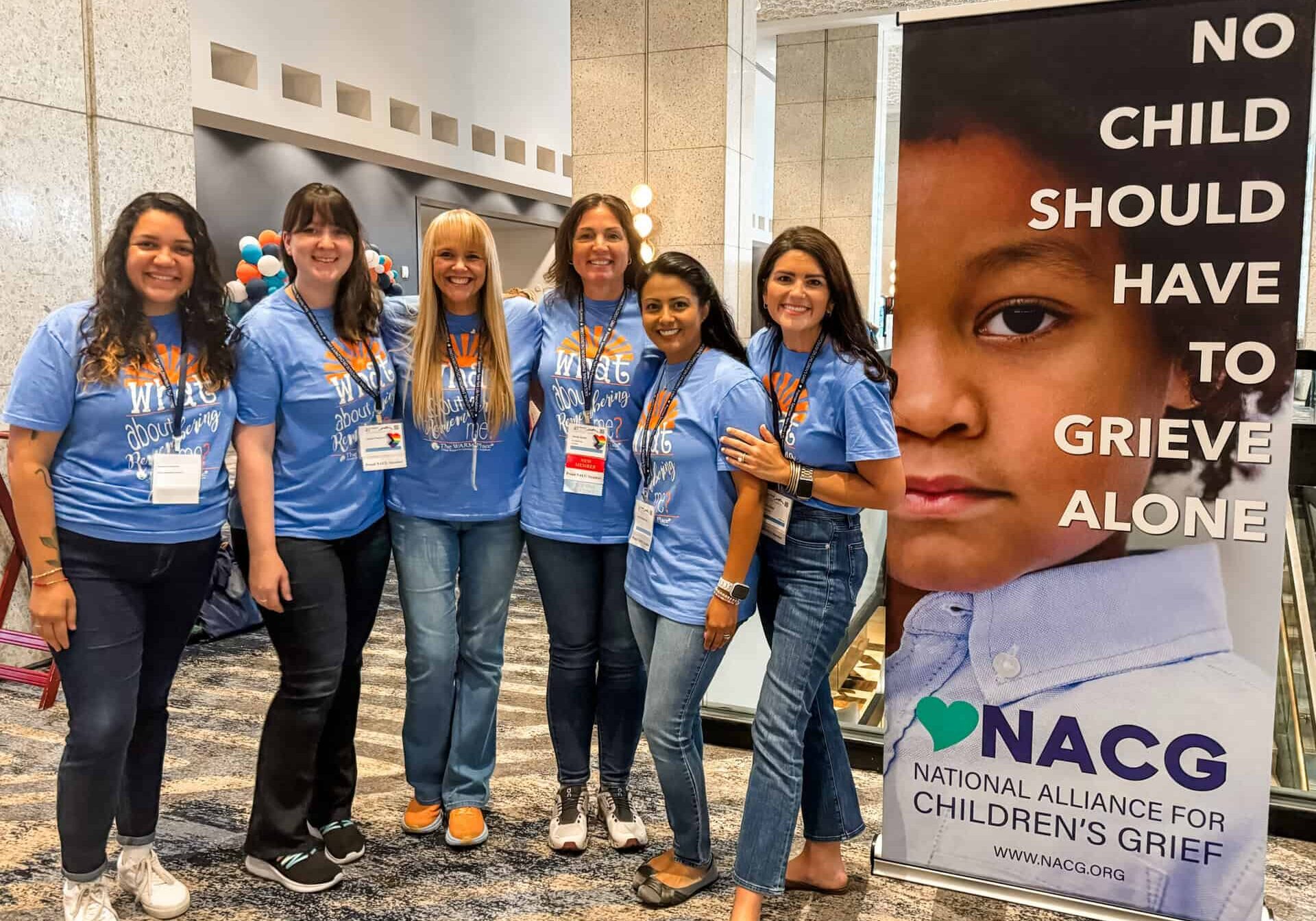A grieving heart aches for their loved ones year-round but there is something particularly difficult about the holiday season. It is only natural to have worries and fears emerge and to ask yourself, “how am I going to make it through” this year. Recently, in one of our peer support groups, we asked our adult caregivers to share what is weighing on them the heaviest as they enter the holiday season.
Here are some of the valuable insights and worries they shared:
Worries about their own feelings
- Not being in a traditional mood
- How to deal with emotional stress during the holiday season
- I will not be able to enjoy it due to missing my loved one so much
- How to face family members who you are upset with currently
- How will I feel?
- Feeling alone or like an outsider at holiday events
- Just not being me
Worries of their grief affecting others
- Not being able to be present enough for my kids
- Breaking down and ruining it for everyone else
- Not wanting to celebrate in any way even though we should celebrate for the kids
- I will be too annoyed with my family to enjoy some moments
Worries about others’ feelings
- That my spouse will not be able to deal with the holidays and have a major anxiety attack or worse
- Being emotional, holding it together for family
- Worrying about my mom spending the holidays apart for the first time
- Not being able to please everyone
Feeling the absence of their loved one
- Not remembering the joy and the wonderful memories made over the years
- Making new traditions while still remembering him
- Not living up to the celebration that my loved one would have provided
As with most things in grief, coexisting side by side is the present with the past. To show the strength that peer support groups can provide, each adult then responded to the worry of a fellow caregiver. These are the words of lived experience the group gave to each other, and that they are now gifting to any grieving hearts that this blog may encounter:
Value new memories
- Create new traditions
- Create new memories
- Go on a vacation
- Do something different, like booking a hotel or even if it’s just eating McDonalds
Take a break
- Give yourself a break from the heavy feelings
- Give yourself the ability to have your moment, walk away when necessary and don’t hold it in
- Take alone time
Accept your feelings
- You don’t have to put a smile on your face
- We’re going to feel what we’re going to feel, and you can’t change that
- Do your best and accept it
- Don’t expect others to fill the shoes of your loved one
- You have the right to feel your feelings, don’t stop living
- Don’t try to be too strong, be vulnerable
Create healthy boundaries
- Give yourself space and be with who you truly want to be with
- Be with family that feels safe
- Be picky with who you spend the holidays with
- Do your own thing: you can do what you want and be ok with it, or you can spend all day making someone else happy while you’re miserable
- Find a balance
- Be ok with making people mad, put yourself and your kids first
- Don’t do things/make plans for others
- Stop caring what others think of you, choose people that love you for you
- Do what you want
- Don’t take on others’ worries
Lean into these well wishes
- We are more resilient than we know
- The person may be gone but the memories linger on in your hearts
- Remember that your life with your loved one is not gone
- A prayer for peace and joy
If you are considering starting a new holiday tradition this year, one of the caregivers shared a new tradition that has been helpful for their family. They have started buying ornaments to symbolize specific milestones they have experienced or challenges they have overcome. If you moved homes, get a house ornament, if your child graduated from high school, get an owl, or scroll ornament, or if you survived your first birthday without your loved one, get a cake or candle ornament, and so on. In this way, you remember the good memories you have been able to create, while honoring the journey you are on. Sit with these words of encouragement and consider how they fit into your plans. At the end of it all, it is important to remember to prioritize what is going to feel best for you and your family.
On December 16th, Program Director Dana Minor did a Webinar entitled Grief Talk: Surviving the Holidays. Dana shares helpful information to support children and families grieving the death of a loved one, discuss strategies in supporting others who are grieving, and explore traditions and activities that families have found meaningful during the holiday season. To watch this webinar, click here.



